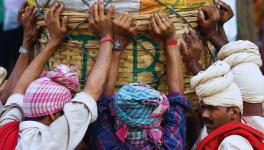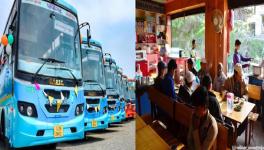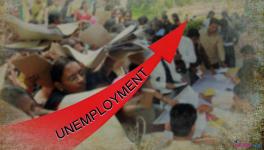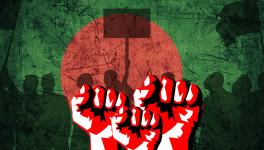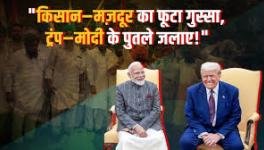Roma, Sinti Report Exposes Discrimination, Political Inertia
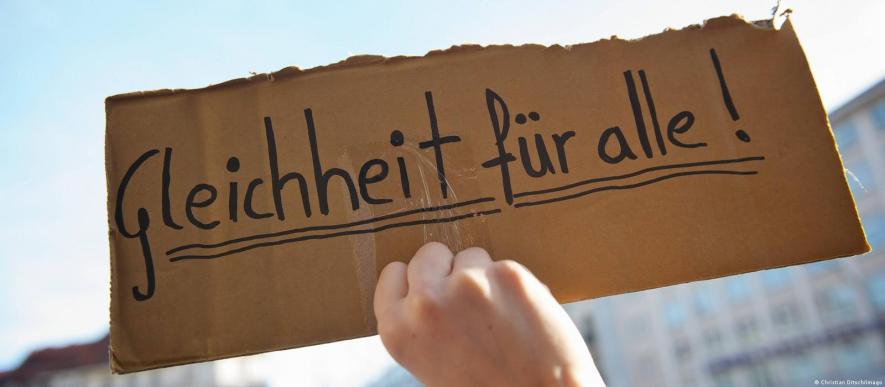
A new report by the European Roma Grassroots Organization documenting the living conditions of Roma and Sinti communities shows they are Europe's largest, and most disadvantaged, minority.
Swedish politician Soraya Post, a prominent Roma activist, presented the organization's results this week, demanding action from governments. Post was a member of the European Parliament from 2014 to 2019 and sits on the board of a network that brings together Roma organizations from across 30 countries.
The report notes that Roma experience significantly unequal treatment in the health care sector. One in five members of the Roma community suffers from chronic disease, while one in four does not have health insurance. The data was drawn from national studies and found that the Roma community has severe difficulty accessing health care services in numerous EU member states.
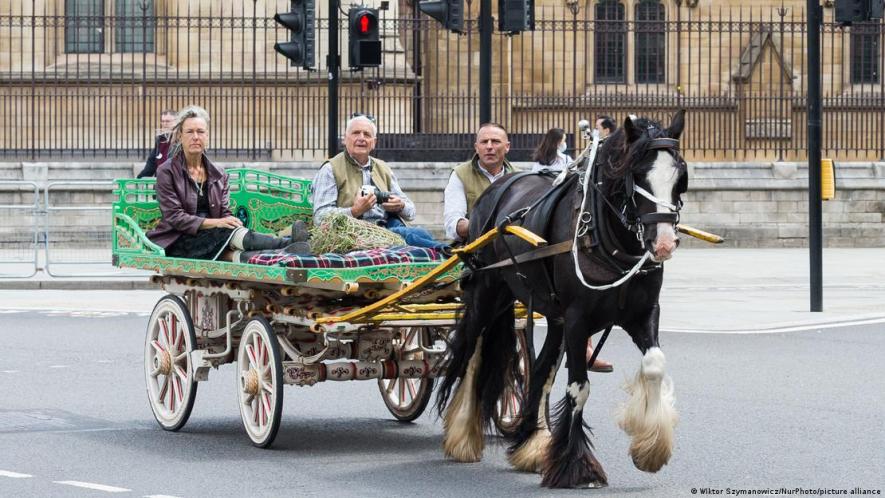
In 2021, members of London's Roma community traveled by carriage to protest government discrimination
According to Post, the numbers show that conditions have not improved since the 2020 EU Roma Strategic Framework for Equality, Inclusion and Political Participation. In fact, the COVID pandemic appears to have exacerbated the situation, she said. All this comes in spite of the appeal made by European Commission President Ursula von der Leyen when presenting the EU Roma framework: "Where is the essence of humanity when every single day Roma people are excluded from society?"
EU member states have agreed to report by the end of 2022 on the progress they have made implementing the framework in education, housing, health care and political participation.
Roma are 'a developing power for economy'
The president of the Belgrade Fund for Political Excellence, Sonja Licht, spoke at an event organized by the the Southeast Europe Association and the Aspen Institute Germany in early November, where she highlighted the great potential in Roma society that politicians often overlooked. "Roma are a growing economic and demographic power in the Balkan region and for Europe. They are an engine, a developing power for economy. Without development our region will simply remain the periphery of the periphery," she said.
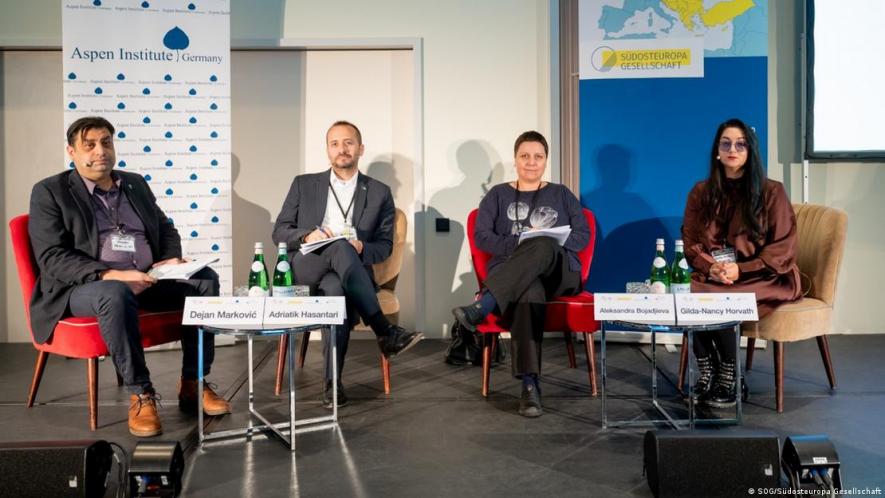
The Civil Society Forum brought together high-ranking representatives from civil society, business and politics active in the Western Balkan region
The issue Amplifying Roma Voices in Policy Making was one of the main topics of the event, which was centered around development in the entire Western Balkan region. Living conditions in Roma communities were indicative of how state bodies functioned, said Elvis Memeti, the national Roma contact point for North Macedonia's prime minister, which was why they deserved a key role in political processes.
"The gap in living conditions, infrastructure, education, organization and functionality of the system in provision of public goods and services between Roma and non-Roma is increasing," he said.
Adriatik Hasantari of the organization Roma Active Albania in Tirana pointed out that the most vulnerable in society were also those most severely affected. Racism and antiziganism were still prevalent throughout the system and handed down from one generation to the next, independent of political convictions.
"Imagine a kid who was evicted from its home already several times by the age of 5," said Hasantari. "How should this person ever build trust in the system or contribute to it later?"
This is why it wasn't enough for Roma simply to be "heard," he argued. Political inclusion was just the first step of many still needed. "Politics needs to move Romani expertise from the periphery to the center of policy-making and decision-making processes," he said.
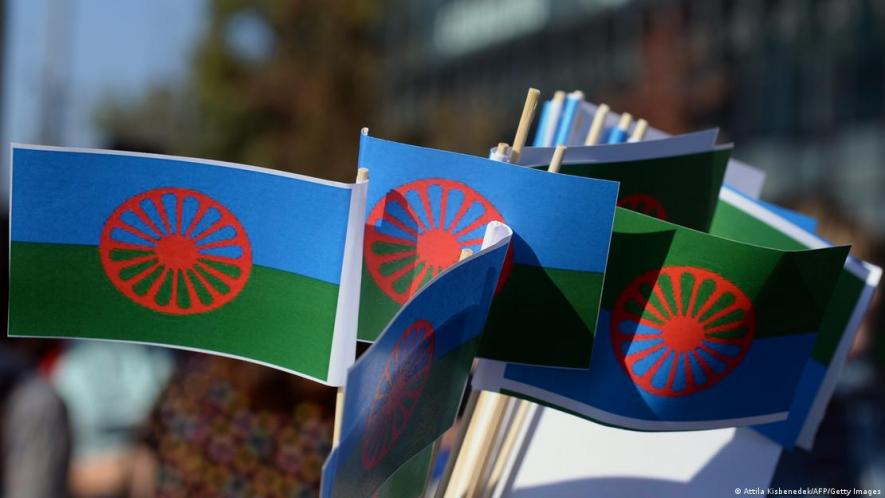
The Roma flag is dark blue and green, representing the heavens and earth, with a chakra wheel in the center in recognition of Indian heritage.
But this is a tall order given the current situation for Roma living in the Western Balkan region and the EU. Dejan Markovic from the Serbian Roma Forum in Belgrade pointed to data from the recent report by the EU Agency for Fundamental Rights.
"Today still more than half, 61%, of the Romani population has no access to adequate housing or water, one third, 31%, of the children suffer because they don't have proper food to eat," he said. "The reason is the lack of political will to really make a change."
'No politics without our participation'
Aleksandra Bojadijeva from the Regional Cooperation Council added that to date, only symptoms — not the root causes — had been addressed.
"It's high time to tackle antiziganism, as it is the root cause of everything that has happened to Roma in the past centuries," she told DW. "It's not enough to say our legislation is treating everybody equally. If people are in different positions they are not equal, they need equality of opportunities."
However, this still has not become a reality, in spite of the EU Roma framework demanding concrete action. Far too few members of the Roma community can be found holding political office or working in government administration. Many believe the only way to improve the quality of political decision-making would be to incorporate Roma into the process.
When the European Commission evaluates the implementation of the EU Roma strategic framework in 2023, it will show just how seriously EU member states have taken their commitments.
This article was translated from German.
Get the latest reports & analysis with people's perspective on Protests, movements & deep analytical videos, discussions of the current affairs in your Telegram app. Subscribe to NewsClick's Telegram channel & get Real-Time updates on stories, as they get published on our website.










